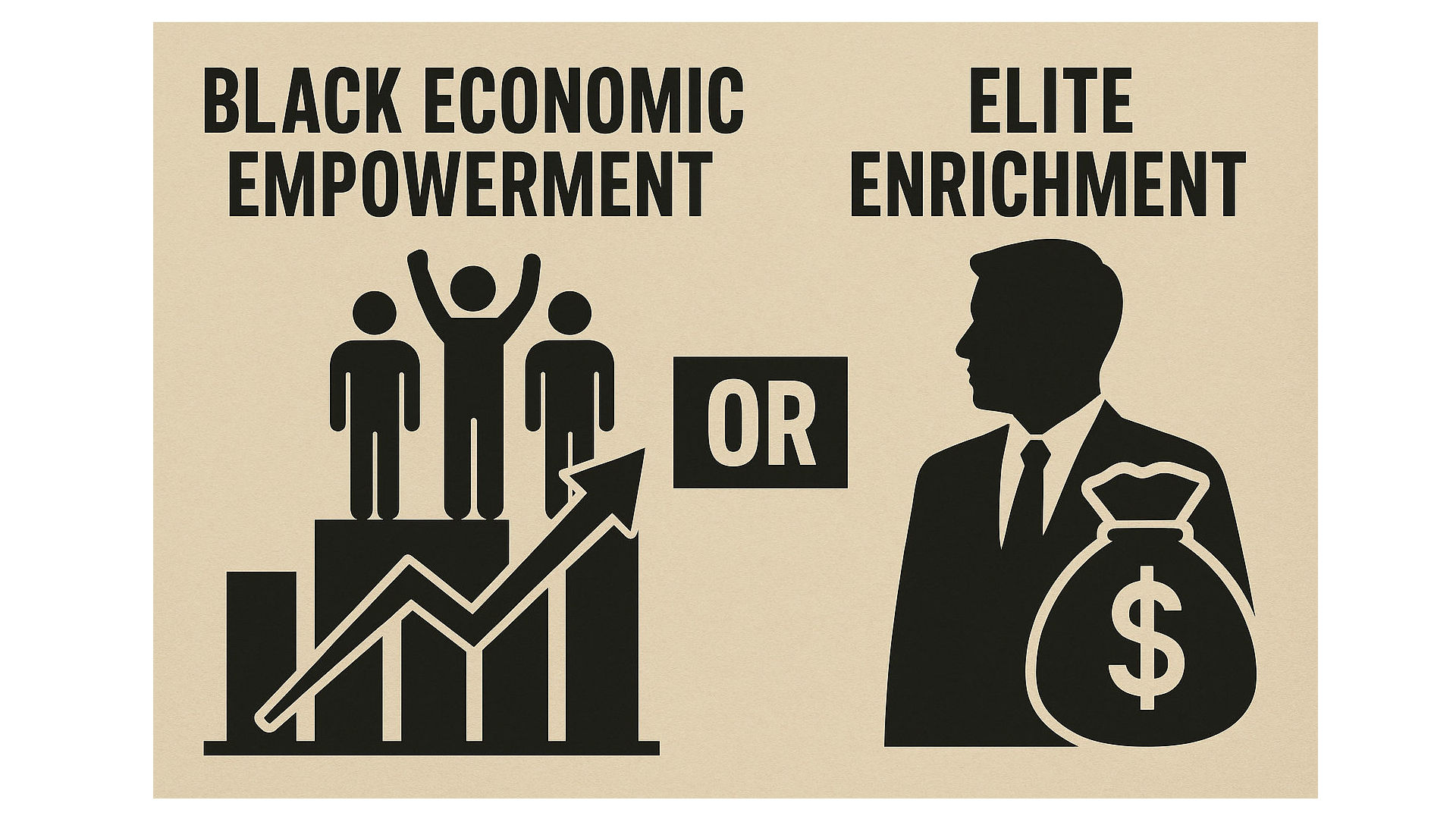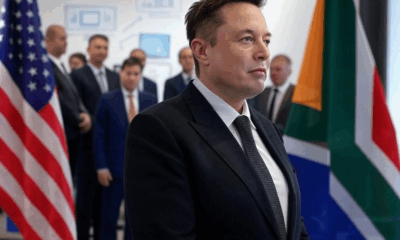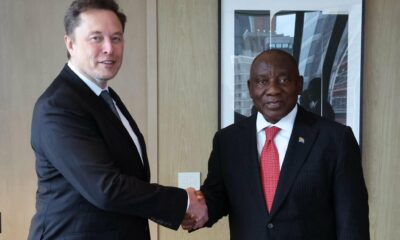Published
8 months agoon
By
zaghrah
As the DA enters government and public debates shift, BEE is back in the spotlight and some are hoping it quietly fades away. That could be a dangerous mistake.
By now, you’ve probably noticed that Black Economic Empowerment (BEE) is back on everyone’s lips from Twitter threads and radio panels to WhatsApp groups and business boardrooms. It’s no coincidence. South Africa’s shifting political winds, the DA’s entrance into national government, and even Elon Musk’s recent commentary have rekindled a question many thought was settled: is BEE still necessary?
What’s surprising isn’t that BEE is being debated again but how few voices have come forward to defend it.
Why the silence?
Some within the ANC, it seems, are struggling to speak up for BEE. That’s partly because over the years, the term has become muddied by its close association fair or not with corruption, cronyism, and cadre deployment. Words like “State Capture” and “BEE tenderpreneur” have tainted public perception, blurring the lines between genuine redress and political misuse.
But we’d be making a grave error if we let that confusion justify walking away from BEE altogether.
More than just policy, it’s a social compact
Let’s go back to why BEE was introduced in the first place. Saki Macozoma, a business leader who’s benefitted from the policy but still offers a sober perspective, summed it up best: “We understood that we could not have a group of people of a certain hue holding political power, and another group of a different hue holding economic power. That’s a recipe for disaster.”
That logic still holds. Ending race-based redress wouldn’t magically fix the economy. In fact, it could do the opposite deepen inequality, feed resentment, and create fertile ground for unrest.
The tension is realand understandable
At a recent panel discussion, the mention of BEE was met with visible discomfort and, for some, palpable hope that it might soon disappear. For many white South Africans, particularly those raising families and worrying about job prospects, BEE feels personal. “I can live with this,” one might say, “but not for my children.”
That sentiment matters. It speaks to something deeply human: the instinct to fight harder for the next generation than for ourselves.
But it’s also why we need to keep having honest conversations about what BEE is—and isn’t.
Let’s not conflate issues
It’s crucial to separate transformation from maladministration. BEE was never supposed to be a shortcut for the politically connected or a shield for corruption. The fact that some misused it shouldn’t mean we abandon it. Instead, it calls for reform, transparency, and recalibration, not erasure.
The economic elephant in the room
Critics often claim that BEE chokes business growth and deters investment. But let’s be honest: if BEE were truly the main reason South Africa’s economy isn’t growing, we’d be booming by now. Our problems run deeper—poor infrastructure, power shortages, rigid labour laws, crime, and inconsistent policy implementation.
That doesn’t mean BEE doesn’t need work. It does. But scrapping it won’t fix a broken logistics network or bring down our debt-to-GDP ratio.
So, what’s the alternative?
If we walk away from BEE, what do we replace it with? “Trickle-down” economics? A vague hope that markets will fix inequality on their own? History has shown that, left unchecked, inequality becomes entrenched—and explosive.
South Africa remains one of the most unequal societies on Earth. The wealth gap is still largely racial, despite political freedom. If we want peace, cohesion, and growth that lifts everyone, we can’t ignore that reality.
Moving forward means doing better not giving up
Abandoning BEE is not the answer. But neither is clinging to a broken version of it. We need new energy behind transformation: one that rewards merit, creates genuine opportunity, and restores public trust.
BEE, at its best, was meant to be constructive social engineering to rebalance decades of exclusion. That mission is not yet complete. If we abandon it now, we do so not just at our own risk, but at the risk of our children’s future. And in South Africa, that’s something we simply cannot afford.
{Source: Daily Maverick}
Follow Joburg ETC on Facebook, Twitter , TikTok and Instagram
For more News in Johannesburg, visit joburgetc.com


The R20bn Vote of Confidence: Inside SA’s Overhauled Transformation Fund


“It is Bankrupting South Africa”: The Explosive Debate Over BEE’s Economic Legacy


Mbalula Says South Africa Needs More Black Billionaires as BEE Debate Heats Up


Starlink sparks political storm as ANC accuses minister of bypassing transformation laws


“Deeply offensive”: Presidency slams Elon Musk over claims about South Africa’s race laws


SAHRC Uncovers Racial Bias in Hartbeespoort Land Leases: Black Applicants Side-lined for Years















